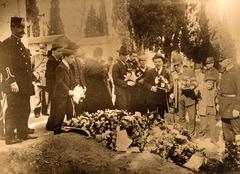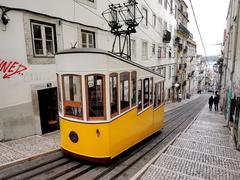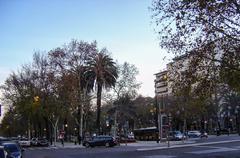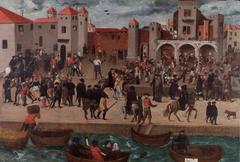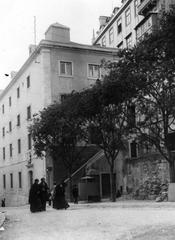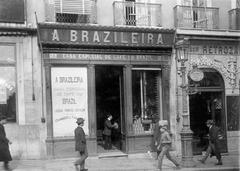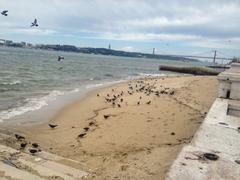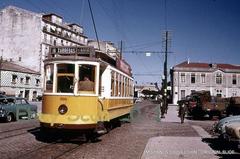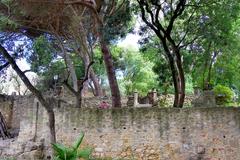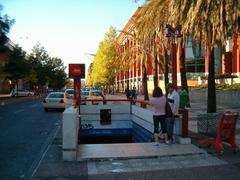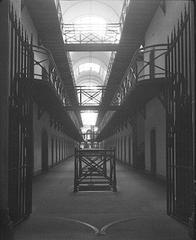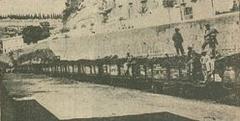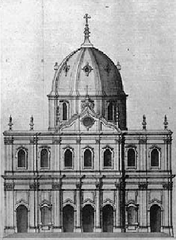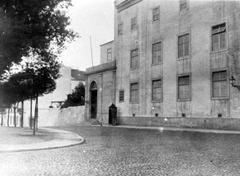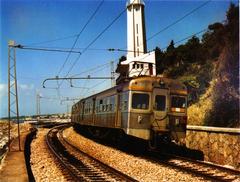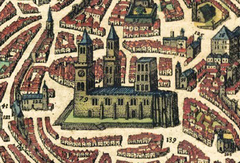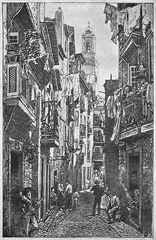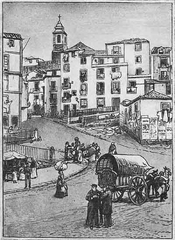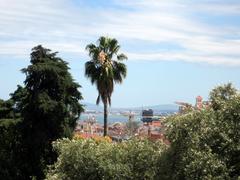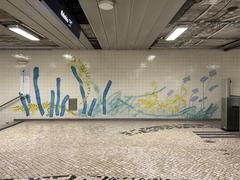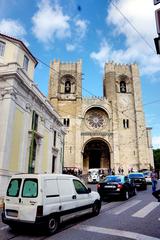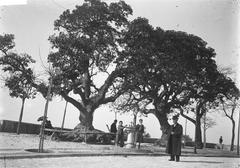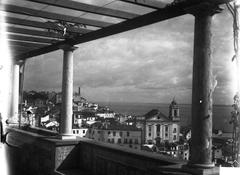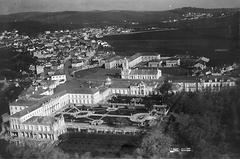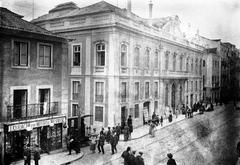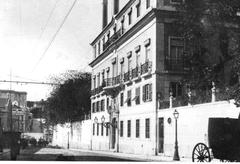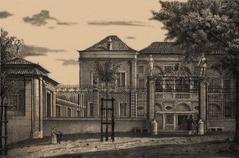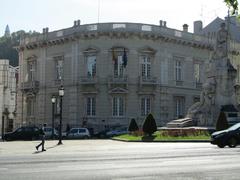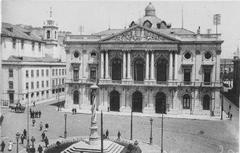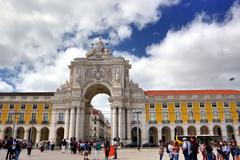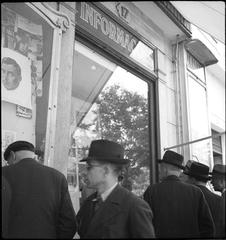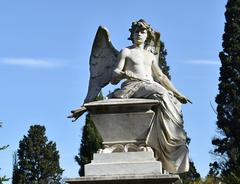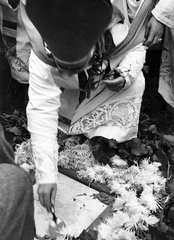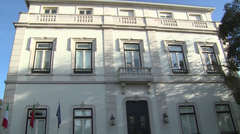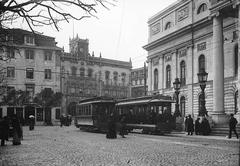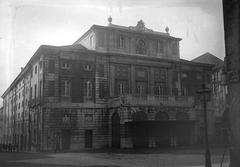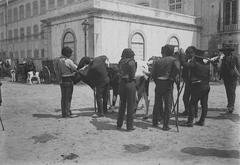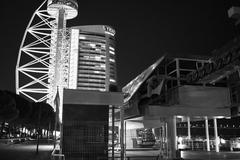Independente University Lisbon: Visiting Hours, Tickets, and Historical Significance
Date: 04/07/2025
Introduction
Independente University (Universidade Independente, or UnI) occupies a unique place in Lisbon’s educational history. Established in 1993 as one of Portugal’s pioneering private universities, UnI reflected a period of significant transformation in higher education following the nation’s integration into the European Economic Community. While the university closed in 2007 due to academic and administrative controversies, its former campus sites and legacy continue to attract visitors interested in Lisbon’s dynamic academic and urban evolution. This guide provides a comprehensive overview of Independente University’s history, its impact, visitor information, and practical tips for exploring its legacy in Lisbon. For further context, see Wikipedia: Higher education in Portugal and the Independente University Official Archive (archived).
Table of Contents
- Introduction
- Founding and Early Years
- Academic Development and Expansion
- Role in Lisbon’s Higher Education Landscape
- Closure and Aftermath
- Visiting the Former Site
- Architectural and Cultural Insights
- Frequently Asked Questions (FAQ)
- Conclusion and Recommendations
- References and Further Reading
Founding and Early Years
Independente University was launched in 1993, a period marked by rapid educational reform and expansion in Portugal. The institution was created to offer alternatives to the traditional public university model, with flexible study programs and innovative curricula tailored to both local and international students. By providing evening and modular courses, UnI became especially attractive to working professionals and non-traditional learners.
Academic Development and Expansion
During the 1990s and early 2000s, UnI broadened its academic scope, offering degrees in law, management, engineering, social sciences, and the arts. Its flexible approach, smaller classes, and industry-focused programs fostered a practical learning environment. The university also established partnerships within Portugal and across Europe, aligning itself with the Bologna Process to facilitate degree recognition and student mobility (Anchorless: Universities in Portugal for Expats).
Role in Lisbon’s Higher Education Landscape
UnI played a vital role in diversifying Lisbon’s higher education sector, helping to meet the growing demand for tertiary education during a time of public university capacity constraints. Its urban location connected students to the city’s economic and cultural life, and its alumni contributed across various professional fields. The university’s emphasis on flexibility and practical skills anticipated broader European educational trends.
Closure and Aftermath
In 2007, following government investigations into academic and financial irregularities, the Portuguese authorities revoked UnI’s license, leading to its closure. The university’s downfall became a catalyst for reform, prompting the establishment of stricter regulatory bodies such as the Agência de Avaliação e Acreditação do Ensino Superior (A3ES) in 2009 to ensure quality assurance and integrity in higher education (Wikipedia: Higher education in Portugal).
Visiting the Former Site of Independente University
Location and Accessibility
- Primary Address: Rua do Salitre, Areeiro district, Lisbon
- Transport: Accessible via Lisbon Metro (Areeiro station, Green Line), multiple bus routes, and taxis. The neighborhood blends residential and commercial areas, with good pedestrian infrastructure.
Visiting Hours & Entry
- The former university buildings are now used for commercial and cultural purposes and are not open to the public as a university or museum.
- There are no official visiting hours or ticket requirements for the site.
- Visitors may view and photograph the exterior from public spaces but should respect the privacy of current occupants.
Nearby Attractions
- Areeiro Square (Praça do Areeiro): A vibrant urban plaza with mid-20th-century architecture.
- Alameda Dom Afonso Henriques: A popular boulevard for walks and relaxation.
- Campo Pequeno: Historic bullring turned multi-use venue.
- Bairro Alto & Independente Collective: The Independente Collective, housed in 19th-century palaces in Bairro Alto, is a notable cultural venue blending historic architecture with modern hospitality (The Independente Collective official website).
Tips for Visitors
- No Guided Tours: There are no official tours of the former UnI campus.
- Photography: Allowed from outside; do not enter private property.
- Combine Visits: Explore other Lisbon educational landmarks such as the University of Lisbon, NOVA University Lisbon, and ISCTE, all of which offer public events and campus tours (Global Citizen Solutions: Universities in Portugal).
Architectural and Cultural Insights
The former UnI campus reflects the utilitarian institutional design of late 20th-century Lisbon, contrasting with the city’s historic buildings. Its adaptation to commercial use is emblematic of Lisbon’s urban renewal, where educational spaces are repurposed for contemporary needs. The Independente Collective in Bairro Alto, for instance, showcases the successful transformation of educational sites into vibrant cultural and hospitality hubs.
Frequently Asked Questions (FAQ)
Is the former Independente University site open to the public?
No, the site is used for commercial purposes and is not open for interior tours.
Are there any admission fees or visiting hours?
No tickets or official hours. The exterior can be viewed from public spaces at any time.
How do I get there?
Via Lisbon Metro (Areeiro station), buses, or taxis.
Can I take photographs?
Yes, of the building’s exterior only.
Are guided tours available?
No official tours are offered at the site.
Conclusion and Recommendations
Independente University’s story is a significant chapter in Lisbon’s academic and cultural evolution. Its rise and fall underscore the importance of innovation as well as rigorous quality assurance in education. While the campus no longer serves as a university, its buildings and the surrounding neighborhoods offer visitors a unique glimpse into Lisbon’s educational legacy and urban renewal.
Travelers are encouraged to explore the Areeiro district, enjoy nearby historical sites, and, for a taste of Lisbon’s contemporary cultural scene, visit the Independente Collective in Bairro Alto. For updated visitor information, special events, and guided tours related to Lisbon’s academic landmarks, consult local tourism resources and platforms like The Independente Collective official website.
For more insights and interactive guides, download the Audiala app and follow us on social media.
References and Further Reading
- Independente University Official Archive (archived)
- Study Abroad Aide: Best Universities in Lisbon
- Wikipedia: Higher education in Portugal
- Anchorless: Universities in Portugal for Expats
- Global Citizen Solutions: Universities in Portugal
- Lisbon Portugal Tourism Guide
- Smapse: Higher Education in Portugal
- The Independente Collective official website
- Top Historical Sites to Visit in Lisbon
- Exploring Bairro Alto: Lisbon’s Cultural Heart
- Lisbon’s Architectural Heritage: A Walking Tour
For the best visitor experience, consider using interactive maps and images alongside this article.

